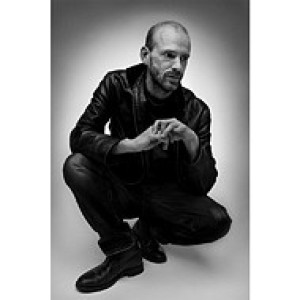The Open Door
Which is sometimes what a blip pictures is - the open door that is just waiting for you to walk through it. There are all manner of ideas for blips - maybe something French for Bastille Day - and even pictures already taken that would 'do' for the blip of the day - like the one I took of progress on the trams project beside Haymarket as they lay the tracks - but ultimately there is that picture out there just waiting to be taken.
You know when you see it.
This evening I went to see the French film La Rifle (English: The Round Up) at the Filmhouse. Although probably not entirely appropriate for 14 julliet, it was the last showing of it at the cinema and I did really want to see it. It brought back many of the feelings I had from my visit to Paris last year and the way that my visit hit me in a very personal and emotional way about the Holocaust in Europe. Obviously I knew about it before I went, and Paris isn't Auschwitz, but maybe that was why it was so powerful. I wasn't particularly expecting it, unlike what must be the case when you pay a visit to Auschwitz or any of the other camps. It got 'under the radar' and took me by surprise before I was able to close up my defences. I found it hard to hide behind the camera to keep my distance and instead there were times when the camera seemed wrong and incapable of saying what I wanted to say.
So to tonight's film. Fictional, but based on true events when over 13000 Parisian Jews were rounded up on the 16th and 17th July 1942. In fact one of the Germans in the film suggested it be done on the 14th, but the French police said that it should be delayed until after the national day. Although many of the reminders of those events that I saw were in the Marais quarter, close by the Bastille, the film focused on people living in Montmartre and the early scenes brought back memories of several visits I made there during the fortnight I was in Paris. And in one of those coincidences that link the fabric of life, one of the foreign Jewish families in the film turned out to be Polish, from the eastern city of Lublin. Which is where my good friend A is from. The same A I walked round Montmartre with on a sunny May evening, taking photographs of the same streets that were up there on the screen. The film followed the Jews, first to the Winter Velodrome, close to the Eiffel Tour, and then to an interim camp, before they were put onto trains, taking them east, to the death camps. As it said at the end of the film only a handful the 13000 survived to the end of the war. Many more had avoided being rounded up, as the plan had been to arrest 24000, but they were saved by the support of other Parisians. While some Parisians were portrayed as being anti-semitic, others showed bravery and humanity to do something to help. In the film, there were moments at the end, after the war, as people looked at pictures of the dead, searching for their families, that were clearly intended to invoke strong emotions. Which they did. The walls of photographs the same as those up in the Shoah memorial I visited in Paris. But the sequence that really destroyed me, was the scene in the velodrome when a group of firemen came to check the hoses in the building, and instead turned on the taps and distributed water to the thousands crammed into the building. And gathered messages from the people there to take out to friends and relatives, with the support and encouragement of their commander. I'm filling up again now.
I must make that book of photos and writing from my visit to Paris that has been in my head since I got back.

Comments
Sign in or get an account to comment.


